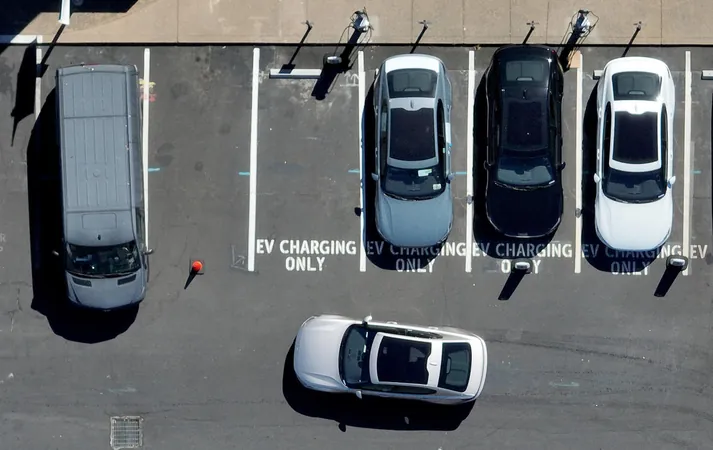
Bill Blair Supports Israel's Potential Strikes on Iranian Oilfields Amid Rising Tensions
2024-10-08
Author: Michael
Federal Defence Minister Bill Blair has stirred the pot in the Middle East crisis, boldly asserting that Israel possesses the right to defend itself by any means necessary, including potential strikes against Iran's vital oil and gas infrastructure. His remarks came on a day when tensions between Israel and Iran escalated dramatically following a ballistic missile attack by Tehran aimed at the Jewish state.
During a pre-cabinet media scrumming, Blair described an Israeli strike on Iran's oil production facilities as "appropriate" in light of recent Iranian aggressions. He emphasized that Israel's defense strategy should encompass all threats, including missile launch sites and military installations that could facilitate attacks against them.
While Blair’s comments seem to resonate with some, the Canadian Foreign Affairs Minister, Mélanie Joly, takes a different stance. Joly recently warned that escalating hostilities could spiral into an all-out war in the Middle East, suggesting that diplomatic measures should be prioritized over military action. She described the situation as highly precarious and called for a cessation of hostilities after the Iranian missile strike on October 1, which was reportedly a response to Israel's operations against Hezbollah and the death of its leader.
Adding fuel to the fire, Israel's military is reportedly planning a significant response to Iran's latest strike, potentially targeting the extensive network of oil facilities in the country. Should Israel move forward with such an operation, the implications could be catastrophic—not just for Iran but for global oil markets as well. Iran stands as the ninth-largest oil producer in the world, and an attack on its oil infrastructure could send shockwaves through the global economy, exacerbating already rising oil prices.
Interestingly, despite Iran being under U.S. sanctions that have restricted its oil exports, the nation still manages to produce around five percent of the world's oil, mainly selling it through gray market channels in Asia, particularly China.
U.S. President Joe Biden, clearly concerned about the broader implications of renewed conflict, has attempted to dissuade Israel from targeting Iranian oilfields, urging them to consider alternative options to ensure regional stability. His warnings come in the context of heightened oil prices following Iran's missile attack, which saw significant gains for global benchmarks.
With tensions mounting and operations looming, the world watches closely as the situation unfolds, recognizing that one misstep could irrevocably alter the geopolitical landscape. As the stakes rise, it's a pivotal moment for international diplomacy in a region marked by decades of conflict.









 Brasil (PT)
Brasil (PT)
 Canada (EN)
Canada (EN)
 Chile (ES)
Chile (ES)
 España (ES)
España (ES)
 France (FR)
France (FR)
 Hong Kong (EN)
Hong Kong (EN)
 Italia (IT)
Italia (IT)
 日本 (JA)
日本 (JA)
 Magyarország (HU)
Magyarország (HU)
 Norge (NO)
Norge (NO)
 Polska (PL)
Polska (PL)
 Schweiz (DE)
Schweiz (DE)
 Singapore (EN)
Singapore (EN)
 Sverige (SV)
Sverige (SV)
 Suomi (FI)
Suomi (FI)
 Türkiye (TR)
Türkiye (TR)